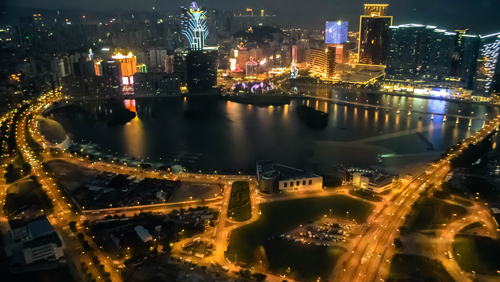 If Macau’s Secretary for Economy and Finance Francis Tam Pak Yuen had his way, there won’t be any increase in the number of casino operators, be it concessionaires or sub-concessionaires, allowed in the city’s gaming market when the current concessions expire in 2020 and 2022.
If Macau’s Secretary for Economy and Finance Francis Tam Pak Yuen had his way, there won’t be any increase in the number of casino operators, be it concessionaires or sub-concessionaires, allowed in the city’s gaming market when the current concessions expire in 2020 and 2022.
Currently, six gaming concessionaires have licenses in Macau and according to Tam, the number is unlikely to increase when the current batch of permits expire in 2020 and 2022. Speaking about his recent trip to Beijing to attend the Chinese People’s Political Consultative Conference, Tam told Macau Business Daily that changes are likely in order as far as regulations for the city’s gaming sector is concerned. While not explicitly saying that these changes will take effect when the permits expire in six years, he did acknowledge that regulations could be stricter next time around. “Regardless of how the contracts are renewed or set up, it is definite the public will have more demands for the operators in the next stage [after 2020 or 2022],” Tam said. “The government will listen to the opinions of the public and propose the same demands for the gaming operators.”
In so much as to have even a simple understanding of Macau’s gaming law and its relevancy to these concessionaires with existing licenses in the city, various interpretations indicate the power of a chief executive to grand extensions to existing concessions by up to five years, although is unlikely that the government can just throw out a number on how long new concessions are going to last.
Technically speaking, Macau only has three concessionaires: Sociedae de Jogos de Macau(SJM), Galaxy Entertainment Group and Wynn Resorts. From there, these three companies have sub-concessions with MGM Resorts, Las Vegas Sands and Melco Crown Entertainment.
Whether the three gaming sub-concessionaires – MGM, Sands, and Melco – become full concessionaires after 2020 and 2022 was a topic Tam had no comment on, saying only that should that be the case, revisions to the current gaming law in place in Macau today should be made and receive the blessing from the Legislative Assembly.
What Tam did make clear was that concessionaires will have to abide by stricter regulations in the future, a lot of which potentially dealing with promoting more locals to casino management positions and how to take better care of local enterprises, especially those in the same industry. Tam said that these were only “reasonably demands”, something future concessionaires won’t have a problem abiding by. But through it all, there’s still some confusion on how the process is going to shake up, specifically on the length of the new concessions and who gets to own them, whether its any one of the existing holders or a new company that will enter the world’ biggest gambling destination.
Fortunately, judgment day won’t happen until 2020 so there’s plenty of time to iron out the details and work on all the wrinkles on how to approach what could be a game-changing time that could alter the casino landscape in Macau.
